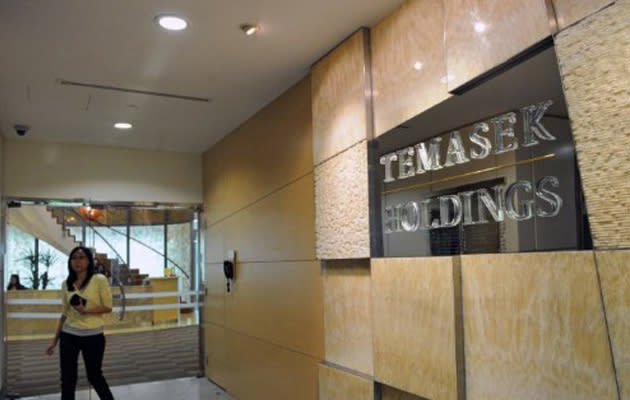Temasek Holdings responds to NSP’s claims
Temasek Holdings has responded to the National Solidarity Party's call for more transparency from Singapore's two sovereign wealth funds, Temask and the Government Investment Corporation (GIC).
In a letter sent to the media clarifying a Straits Times report, corporate affairs director Serena Khoo said Temasek does not manage or invest any money from the Central Provident Fund (CPF) or Singapore's foreign reserves.
"Temasek is a responsible long term investor with reporting standards that well exceed globally recognised yardsticks such as the Santiago Principles, which were jointly developed by sovereign investors and the IMF," she noted, terming NSP secretary-general Hazel Poa's statements "misleading".
On Monday, Poa called for Singapore's next elected President to champion for more transparency from Temasek and GIC as this relates to "the management of our reserves".
"It is a disturbing state of affairs when Temasek with about 400 employees can report an $8 billion administrative expense without incurring significant public scrutiny."
"$8 billion is more than one-sixth of our national budget," she said.
Khoo said Poa was "mistaken" about the expense on two counts: The group administrative expense was $7 billion last year and not $8 billion, which was reported for the year before.
"This also included expenses of subsidiary companies such Singapore Airlines, PSA, and others, and not for Temasek Holdings only," she noted.
"We take this opportunity to reassure our broader public as well as Ms Poa, that we are keen to expand our stakeholder base in a responsible, prudent and measured manner."
Khoo pointed to the annual Temasek Review report, available online, which a summary of the company's key financials, investment returns to shareholders and other relevant details.
Highlights from the report were published in local newspapers last year. This year, highlights were published in 11 local and international newspapers, such as The Straits Times and Financial Times, as well as online news portals such as Yahoo! News, she said.
According to Temasek's group income statement, its administrative expense was $8 billion in 2009, $8.7 billion in 2010 and $7.3 billion in 2011.
Its revenue was $79.6 billion (2009), $76.7 billion (2010) and $83.5 billion (2011), while its total profit was $9.0 billion (2009), $6.8 billion (2010) and $15.8 billion (2011).
In a statement to the press on Monday, Poa compared Temasek's and GIC's rates of return per annum with rates from the Central Provident Fund (CPF). She argued while Temasek Holdings claims yearly returns of 15 per cent over 20 years, CPF only pays out 2.5 per cent.
"We can see from the paltry interest rates offered by CPF, Singapore taxpayers neither enjoy full disclosure nor noticeably remarkable returns," said Poa.
Poa called for greater public awareness of relevant benchmarks such as Malaysia's Employees Provident Fund, which guarantees a minimum return of 2.5 per cent and delivered a 4 to 8 per cent return annually since 1960.
Poa also pointed to Norway's sovereign wealth fund as being successful and yet transparent with its citizens.
"There is a world of difference between GIC being transparent to stakeholders on one hand, and foolishly telegraphing its investment strategy to competitors," she said.
While the party acknowledged the ministerial salary review is a step in the right direction, it also asked Members of Parliament and their immediate relatives to disclose compensation they might be receiving from Temasek, GIC or similar organization.
"With so many PAP MPs also juggling multiple, sometimes dozens, of directorships and consultancies, it is clearly in the public interest to know who else is paying their MPs and for what purposes," said Poa.
She believes better finanicial transparency is the best way to serve Singaporeans.
When asked on Monday, Presidential candidate Tan Cheng Bock said he supports having more transparency financially. He could promote this through his proposed annual statement from the President, he said.


